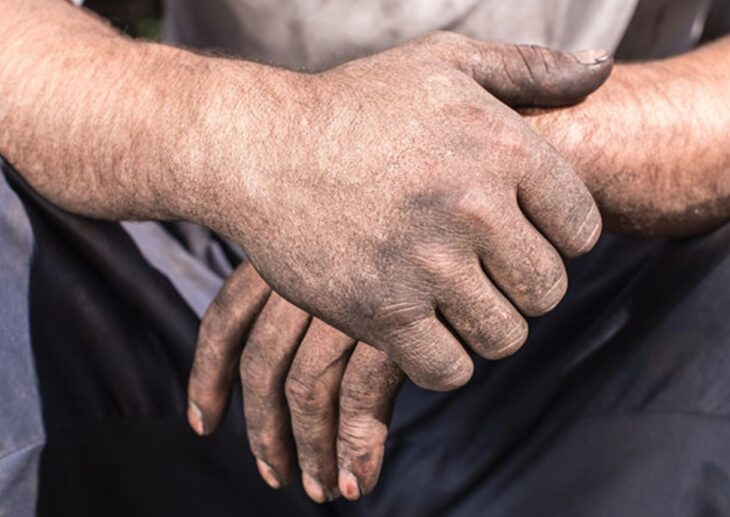An occupational illness or industrial disease is a medical condition contracted due to an unsatisfactory working environment that does not cover traumatic physical injury caused by accident. The term is used for a wide range of medical conditions, including injuries to the skin, respiratory system, muscles, nerves, and tendons. Some of these conditions are umbrella terms for multiple illnesses. In all cases, injury is caused as a result of an employer failing to look after the health and safety of employees and, as a result, is liable in negligence to pay compensation for any injury or loss attributed to occupational illness. Specialist accident lawyers deal with personal injury compensation claims for occupational illness and industrial disease. If you would like free initial advice on whether your potential claim is viable and an estimate of the potential damages award, just visit accident-lawyers.ca for a personal injury lawyer. Most accident claim lawyers operate a contingent fee scheme by use of a conditional fee agreement. You only pay legal costs if the compensation claim is successful and you receive damages for your injury. If the claim fails, you pay nothing, and the accident lawyer writes off his fees and expenses.

Source: Medium
Contents
Health & Safety
Employers are under a legal duty to take care of the health and safety of their employees. There are numerous statutes and regulations which dictate that there should be a safe system of work, which includes a controlled environment in the workplace. All potentially hazardous procedures should be subject to risk assessment, and reasonable action should be taken to remove or reduce any risk identified. There should be adequate ventilation with a safe system for handling hazardous material accompanied by the provision of safety equipment and protective clothing, including respiratory masks where necessary. Any employer that fails to discharge this basic duty to employees will be liable in negligence to pay the employee compensation for any injury, disease, or illness sustained due to failure to properly carry out health and safety procedures.

Source: fcwlaw
Occupational Disease
The industrial, office and manufacturing environment are heavily regulated by law to prevent employees from suffering personal injury; however, several conditions are caused by environmental factors, some of which relate to the situation decades ago which are only now revealing injuries caused as a result of exposure to noxious substances in the past. Industrial diseases, otherwise known as an occupational illness, fall into a number of broadly recognized classes as follows:
-
Asbestos-Related Disease
Asbestos-related diseases fall into three main categories, all related to the inhalation of asbestos fibers and may prove fatal as follows mesothelioma, asbestosis, and asbestos-related lung cancer. In addition, there is a less serious condition known as pleural plaques.
-
Vibration Injuries
The main physical damage caused by vibration consists of Vibration White Finger (VWF), Hand Arm Vibration Syndrome (HAVS), and Whole Body Vibration Syndrome (WBVS), all of which cause permanent and painful disability. All result from being exposed to excessive vibration, usually for a long time, often from hand tools or working in a vibrating environment.

Source: healthysonographer.com
-
Work-Related Muscular Skeletal Disorders (WMDs)
Repetitive Strain Injury (RSI) or work-related muscular-skeletal disorder (WMD) is caused by repeatedly carrying out the same actions without adequate rest breaks. It can occur to production line operatives and is a regular complaint of typists and those who input data at computer workstations. It may cause permanent damage and disability.
-
Silicosis & Pneumoconiosis
This condition relates to ‘silicones’ becoming lodged in the lungs and impairing oxygen exchange rendering the victim short of breath. Silicosis may occur in several dusty environments, including mines, quarries, and foundries. Pneumoconiosis is a variant that occurs as a result of coalminers inhaling coal dust. Employers are required by law to ensure that the air in an industrial environment is not polluted and provides breathing masks in certain dangerous situations where dust inhalation for a short period is unavoidable.
-
Occupational Skin Disease
This condition mainly refers to allergic dermatitis, a problem in numerous industries and an allergic response to exposure to certain allergens common to the industry. There is a very wide range of allergens and an equally wide range of industries affected by dermatitis and occupational skin diseases. Prevention may be by way of barrier creams or alternative employment if severe.

Source: Safety+Health Magazine
-
Occupational Respiratory Disease
The main problems in this area are bronchitis and asthma, and Chronic Obstructive Pulmonary Disease COPD. Bronchitis and asthma are caused by an allergic response to certain allergens that may be present in the working environment. COPD is caused by a reduction of oxygen transfer caused by airborne particles’ lodgment in the lungs from certain dusty industrial environments.
-
Occupational Stress
This topic is a difficult one for accident lawyers; however, if you have suffered from stress or depression as a result of being returned to a working environment that your employer knew was causing you psychological problems previously, you may be able to claim damages if your condition has worsened. You need to discuss this matter in detail with a personal injury lawyer experienced in stress at work compensation claims.
Time Limits
Many of these illnesses have a long latency period between exposure and the development of symptoms. There are time limits to compensation claims for occupational illness or industrial disease; however, due to the nature of most of these conditions, the normal rules are often modified whereby time doesn’t start running until the illness is discovered, which in real terms mean as and when a medical specialist makes a formal diagnosis. There may also be exceptions to the normal rules for those with mental incapacity, including the elderly who may suffer from dementia before the condition is diagnosed. The law relating to time limits is complex, and you should always seek the advice of a qualified local lawyer as soon as possible after the diagnosis of an occupational illness or industrial disease.
